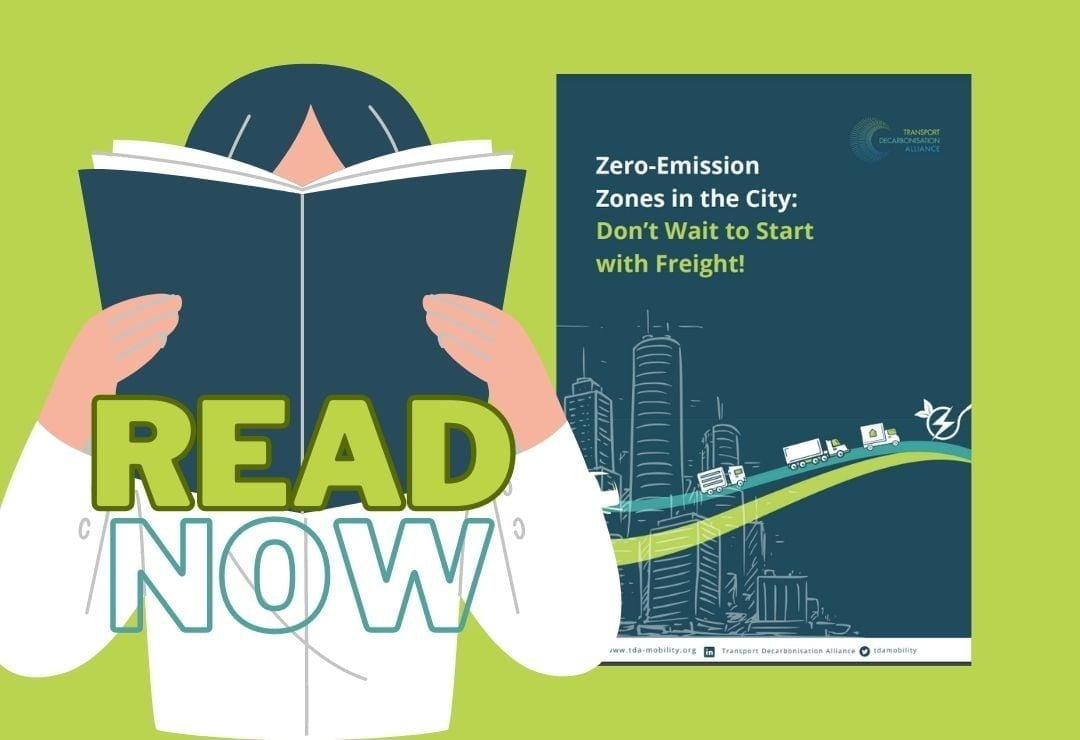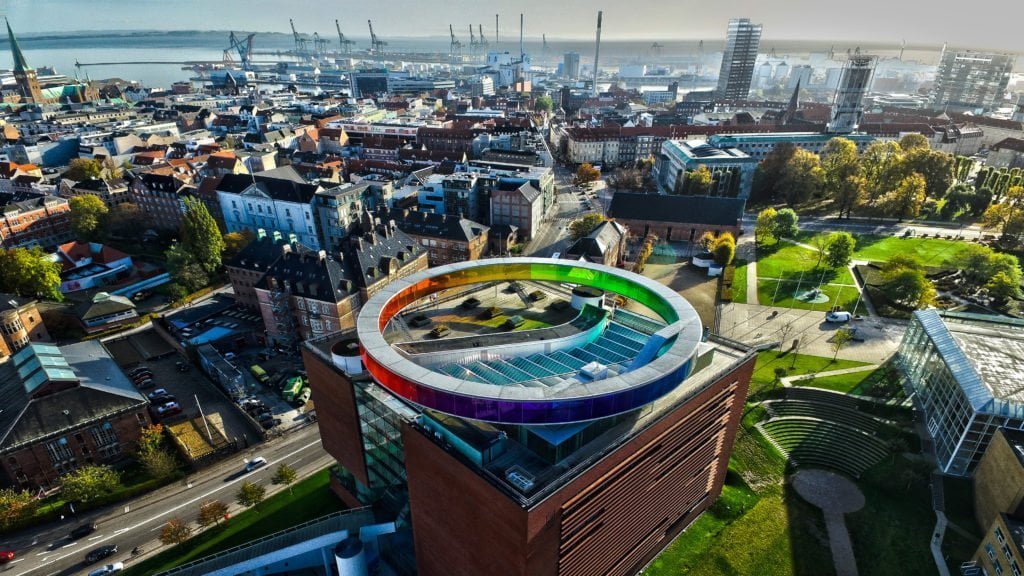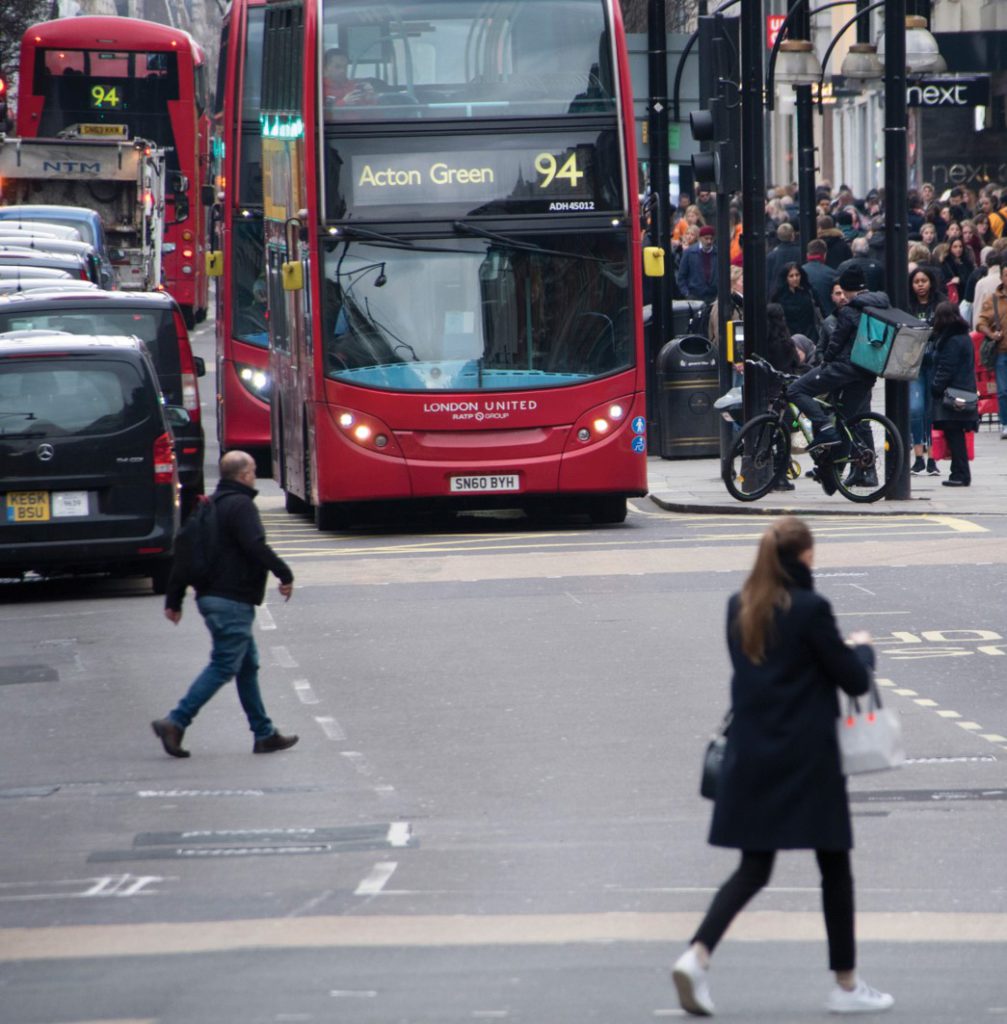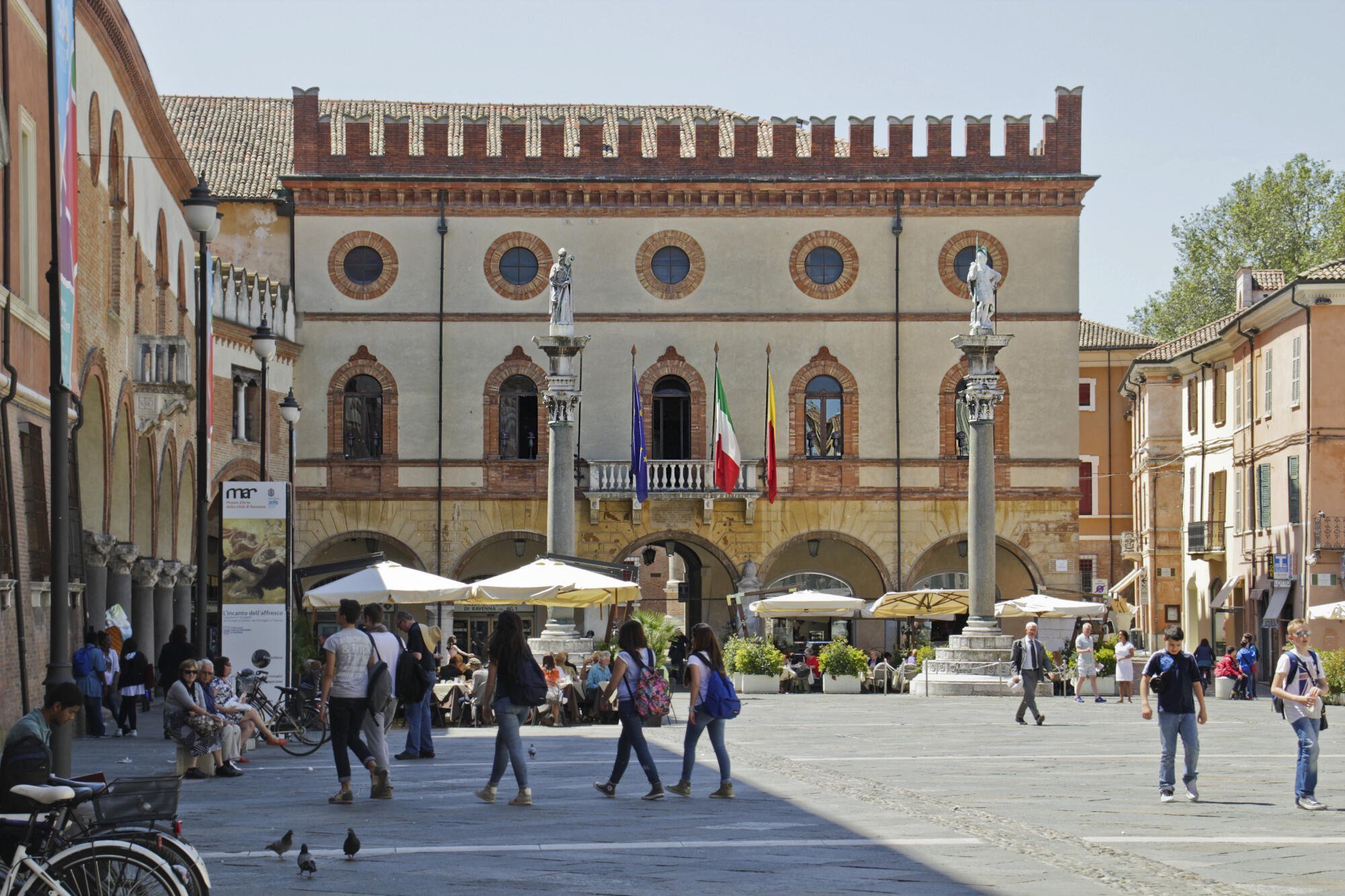POLIS, TDA, and C40 update their How-to-Guide Zero-Emission Zones in the City
POLIS, Transport Decarbonisation Alliance (TDA) and C40 cities launched the updated How-to Guide, "Zero-Emission Zones in the City: Don’t Wait to Start with Freight!" on 25 May, during a dedicated press conference at the International Transport Forum (ITF) 2023 in Leipzig (Germany).
The guide presents experience and advice on developing a zero-emission zone for freight, from public and private-sector representatives around the world.
The first TDA How-to Guide for Zero-Emission Zones (ZEZ-Fs) was released in December 2020 and laid out comprehensive pathways for cities across the globe to reduce their carbon footprint.
The updated guide shares examples of zero-emission zones worldwide that are at varied stages of implementation, along with detailed steps towards the successful implementation of ZEZ-Fs. This guide also broadens the discussion to include the role of zero-emission truck deployment in establishing successful zero-emission zones and in other green freight applications.
The updated guide
Prepared by the TDA, C40, and POLIS, this first-of-a-kind guide invites urban planners, transport officials, freight operators and other stakeholders to consider the advantages of creating zero-emission zones for freight (ZEZ-Fs) in and around cities.
It introduces strategies and experiences of developing ZEZ-Fs in cities across the world, offering a transparent overview of challenges and opportunities as well as advice from pioneers about effective approaches.
The Guide also builds upon inputs and experiences of POLIS members, such as Bologna, London, Madrid, Rotterdam, and the work done by Karditsa and POLIS members Aarhus and Ravenna on the SURF (Sustainable URban Freight) project - a collaboration with Environmental Defense Fund Europe - that guided city planners, business leaders and other freight decision-makers to develop a vision and strategy pathway for sustainable freight. design and implementation of ZEZ-Fs.
Karen Vancluysen, POLIS Secretary-General highlighted:
“Cities can start small and take concrete steps, as they do not need a large set of resources to plan for ZEZ-Fs successfully. The SURF project put into practice the principles of the How to Guide, with innovative concrete actions in Aarhus, Karditsa, and Ravenna".
The guide targets city planners and other freight stakeholders to develop a vision and implementation pathway for the decarbonisation of the freight sector, and it will be supportive of common targets and timelines of local regulation on freight.
Insights from the recently ended ASSURED EU-funded project are also included, as cities play a crucial role as facilitators and can convene multiple stakeholders to ensure that charging infrastructure works for all classes of freight vehicles.
Highlights from the report:
Urban freight and logistics are gaining importance for every city to ensure growth, and quality of life while protecting the environment, climate and liveability. Cities need to work seamlessly with companies to address common challenges.
The following list outlines steps cities should take to achieve buy-in and approval for ZEZ-Fs, which is key to their successful implementation. The order may vary from city to city, and in most cases, it is necessary to proceed in an iterative and cyclical process.
- Obtain necessary data and information on city issues;
- Identify an area as a starting point for your ZEZ-F;
- Engage stakeholders and gain their support;
- Define targets and link them to regional, national and international targets;
- Clarify regulatory powers;
- Identify an implementation pathway and strategy;
- Set an ambitious yet realistic target timeline;
- Test and pilot your innovations;
- Evaluate the tests and amend your pathway where necessary;
- Implement, monitor, fine-tune and aim higher.






